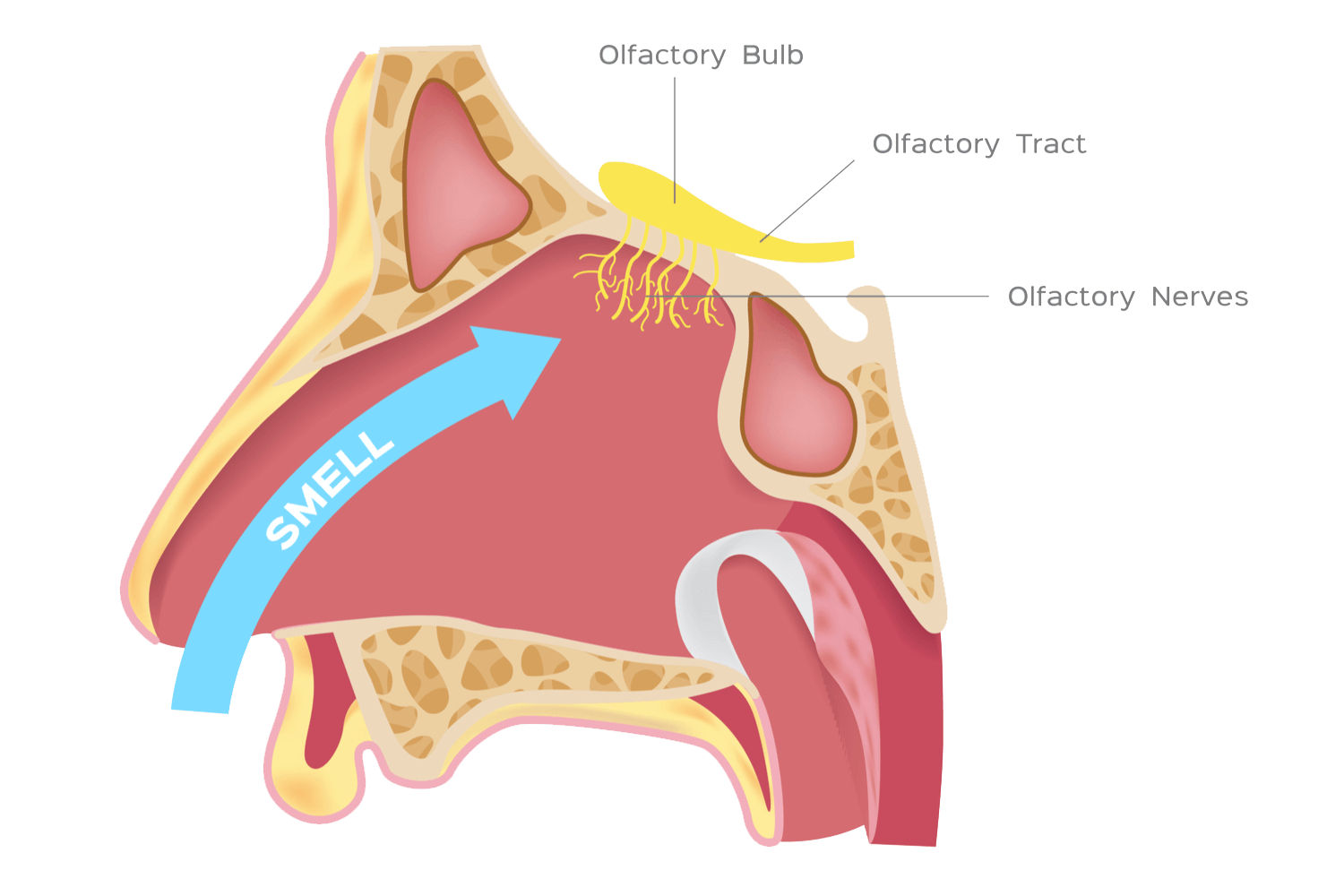For most people, the loss of smell (anosmia), the reduced sensation of smell (hyposmia), and distorted smell (dysosmia) are temporary phenomenon caused by a very diverse range of ailments. For those with long-standing smell disorders, the loss of smell can severely impact one’s quality of life, especially because it is so closely associated with our sense of taste. Without our sense of smell, all the delicious foods and drinks we enjoy do not taste the same. Beyond this, our sense of smell also plays an important role in keeping us safe. For example, it allows us to smell smoke from a fire or prevent us from eating rotten food.
What causes loss of smell (anosmia)?
A wide host of issues can be responsible for anosmia, but to better understand them, anosmia is classified into conductive or neural causes.
CONDUCTIVE ANOSMIA
Conductive anosmia occurs when there is either too much swelling in the nose or something is physically blocking the odors from reaching the smell (olfactory) nerve fibers. This type of anosmia is usually more straightforward to treat, since once the nasal obstruction is managed the sense of smell will spontaneously return to normal. Some examples of conductive anosmia include:
- Nasal polyps
- Severely deviated septum
- Allergic rhinitis
- Nasal tumors
NEURAL ANOSMIA
Neural anosmia occurs in two ways: 1) the receptors of the olfactory nerve in the nose are injured and therefore unable to transmit the sensation of odor to the brain or 2) the parts of the brain responsible for processing the smell signal become damaged. Some examples of neural anosmia include:
- Following a viral upper respiratory infection (by far the most common)
- Head trauma
- Exposure to toxic smoke or chemicals
- Old age (also known as presbyosmia)
- Side effect of medications
- Systemic conditions (diabetes, hypothyroidism)
- Neurologic conditions (Parkinsons’ disease, Alzheimer’s disease, Schizophrenia)
- Tumors of the olfactory nerve
How do you manage and treat loss of smell (anosmia)?
Conductive anosmia requires identifying the cause of inflammation or blockage within the nasal passages, and treating those underlying conditions whether through prescribed medication or surgery. Once appropriately treated, the sense of smell will eventually return on its own.
In neural anosmia, a similar strategy of discovering the underlying cause is necessary to identify the offending agent, whether it be from some medication you are using or if you’ve recently experienced a cold. In general, patients with a loss of smell for under 2 years-time can expect to make at least a partial recovery with treatment. This will involve the use of anti-inflammatory medications and over-the-counter supplements. Unfortunately, a loss of smell present for over 2 years is less likely to respond to treatment.



